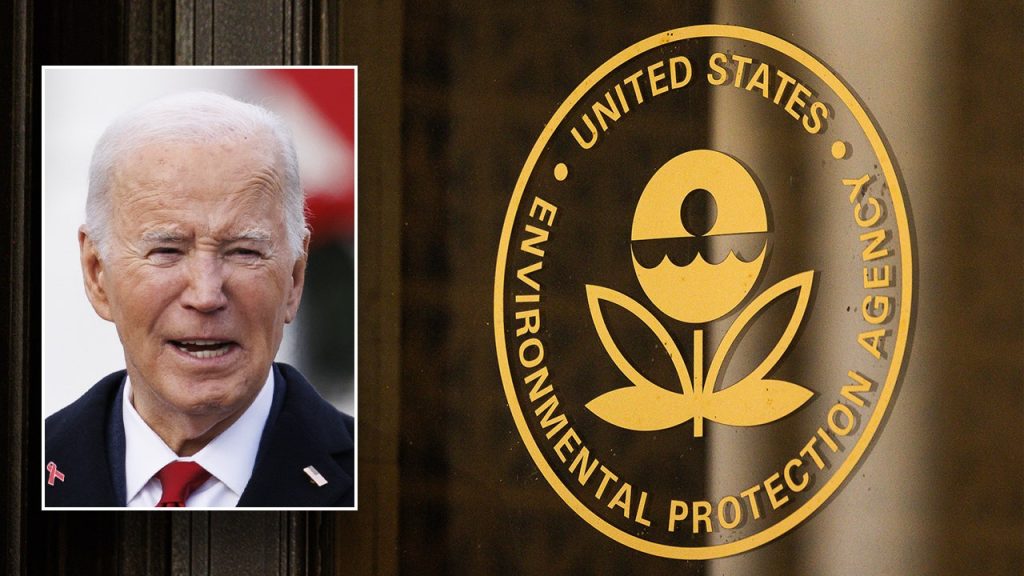The Biden administration, in its final fiscal year, has significantly escalated enforcement efforts against environmental offenses, culminating in a landmark arrest related to anti-climate change activities. This intensified focus on environmental protection is detailed in the Environmental Protection Agency’s (EPA) final enforcement report for FY 2024, which underscores a multi-pronged approach tackling climate change, pollution, and environmental justice. The report highlights a surge in both civil and criminal cases, along with substantial financial penalties levied against polluters, marking the strongest enforcement outcomes since 2017.
A key achievement of the EPA’s enforcement efforts is the first-ever arrest under the American Innovation and Manufacturing (AIM) Act. This legislation mandates an 85% reduction in hydrofluorocarbons (HFCs), potent greenhouse gases commonly used in refrigeration and air conditioning, by 2036. The arrest of Michael Hart in San Diego for smuggling HFCs sets a precedent and signals the EPA’s commitment to rigorously enforcing the AIM Act and curbing the illegal trade of these harmful substances. This decisive action demonstrates the administration’s resolve to combat climate change through robust enforcement measures and serves as a warning to potential violators.
Beyond the AIM Act, the EPA reported a substantial increase in overall enforcement activity. The agency concluded 1,851 civil cases, a 3.4% increase compared to 2023, and charged 121 criminal defendants, representing a 17.6% rise. These enforcement actions resulted in $1.7 billion in administrative and judicial penalties, the highest level since 2017, and led to over 225 million pounds of pollution reductions in overburdened communities. The heightened enforcement reflects the administration’s commitment to environmental justice, prioritizing the protection of vulnerable communities disproportionately impacted by pollution. With approximately 480 open criminal investigations related to environmental programs at the end of 2024, the EPA’s enforcement efforts are poised to continue into the future.
The EPA’s intensified focus on environmental enforcement stemmed from a strategic prioritization of key areas under its National Enforcement and Compliance Initiative. These six priority areas included mitigating climate change, reducing exposure to PFAS (per- and polyfluoroalkyl substances), addressing coal ash contamination, lessening air toxics in overburdened communities, enhancing compliance with drinking water standards, and mitigating chemical accident risks. This targeted approach allows the EPA to concentrate its resources on addressing the most pressing environmental challenges facing the nation. The agency’s efforts in these areas not only protect public health and the environment but also strive to create a more equitable and sustainable future.
The FY 2024 report also emphasized the importance of collaboration in achieving these enforcement outcomes. A 12% increase in criminal leads, generated from referrals within the EPA, highlights the effectiveness of interagency cooperation in identifying and pursuing environmental violations. This collaborative approach strengthens the EPA’s ability to hold polluters accountable and ensures a more comprehensive and effective enforcement program.
David M. Uhlmann, the assistant administrator for EPA’s Office of Enforcement and Compliance Assurance, attributes the robust enforcement results to the Biden-Harris administration’s unwavering commitment to environmental protection. He emphasizes that the heightened enforcement activity sends a clear message to potential polluters: violations will not be tolerated, and protecting communities from environmental harm is a paramount priority. The administration’s actions underscore its dedication to using all available tools, including enforcement, to address the climate crisis and safeguard public health. These enforcement efforts, coupled with significant investments in green energy projects, form a core component of the administration’s legacy on environmental protection.










